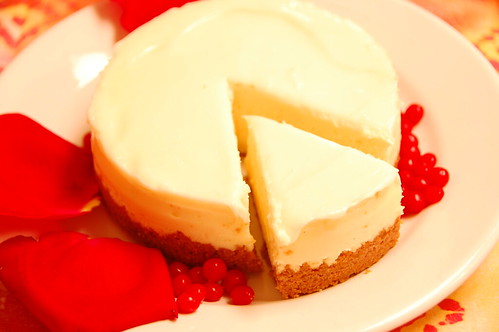In conversation with a group of people last week, we were relating
our favourite cuisines of the world. "Italian pizza," chimed one person.
"Yummy French food," said a cheese-o-phile in our midst.
"I'm a big fan of Indian food," I added. "And Japanese - I just adore sushi."
"I suppose you like them because they're cuisines that are easy to do gluten-free?" piped up one person helpfully.
Well, no actually. Believe it or not, eating gluten-free hasn't eradicated all my preferences and left me re-programmed to love any foods that don't usually contain gluten. My life-long love of spicy chicken dansak and snap-crackly poppadums laced in mango chutney (mmm) isn't a side-effect of coeliac disease. I didn't flip a switch towards sushi appreciation with diagnosis. It seems to be hard for some people to understand that you can still be a food lover and a coeliac.
Certainly, one of the irritations that goes alongside having to follow a special diet is that sometimes your tastebuds go out the window. Not literally (sounds messy), but whereas you once selected food according to your mood, often you're forced to choose for necessity. Nevermind that you feel like a sandwich lunch, this supermarket doesn't do them in gluten-free. Don't fancy nibbling a limp chicken salad? Tough, it's the only thing in the chilled aisle that isn't dotted with croutons or slathered in wheaty dressing.
These days, I'm pleased simply to find something - anything - that I can snack on safely when I'm on the go. But it does send me into a diva-like strop when the people around me seem to forget that I'm not just the robotic eater of anything gluten-free; I actually have likes, dislikes and preferences too. You know, like an actual human being.
On an evening out recently, one chap started steering our little group towards a pizza parlour, saying 'but you can have a salad there without the croutons'. Trivial, perhaps, but I felt like throwing a mini-tantrum. Yes, it's good to know that if I had to eat there for some reason, I won't have to stare at an empty plate. But I do so resent paying full price in a restaurant just to have a few lettuce leaves (without the dough balls, cheese sticks, or whatever else would ordinarily be added to make the salad a bit more filling). Not all restaurants can cater for us (yet), but do give our tastebuds a bit of recognition. After a week of salad lunches, we oh-so-definitely deserve it!
"I'm a big fan of Indian food," I added. "And Japanese - I just adore sushi."
"I suppose you like them because they're cuisines that are easy to do gluten-free?" piped up one person helpfully.
 |
| Sushi. Because it's delicious, that's why. Pic by mroach. CC Attribution-ShareAlike |
Certainly, one of the irritations that goes alongside having to follow a special diet is that sometimes your tastebuds go out the window. Not literally (sounds messy), but whereas you once selected food according to your mood, often you're forced to choose for necessity. Nevermind that you feel like a sandwich lunch, this supermarket doesn't do them in gluten-free. Don't fancy nibbling a limp chicken salad? Tough, it's the only thing in the chilled aisle that isn't dotted with croutons or slathered in wheaty dressing.
 |
| Just let me eat all of this right now. 'Indian cuisine' by Kirti Poddar. CC Attribution-ShareAlike licence |
On an evening out recently, one chap started steering our little group towards a pizza parlour, saying 'but you can have a salad there without the croutons'. Trivial, perhaps, but I felt like throwing a mini-tantrum. Yes, it's good to know that if I had to eat there for some reason, I won't have to stare at an empty plate. But I do so resent paying full price in a restaurant just to have a few lettuce leaves (without the dough balls, cheese sticks, or whatever else would ordinarily be added to make the salad a bit more filling). Not all restaurants can cater for us (yet), but do give our tastebuds a bit of recognition. After a week of salad lunches, we oh-so-definitely deserve it!


.jpg)











